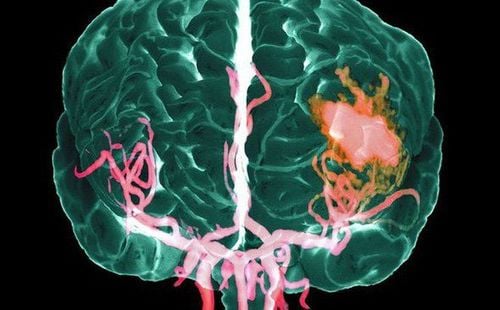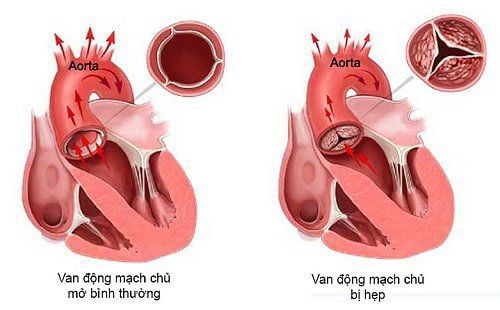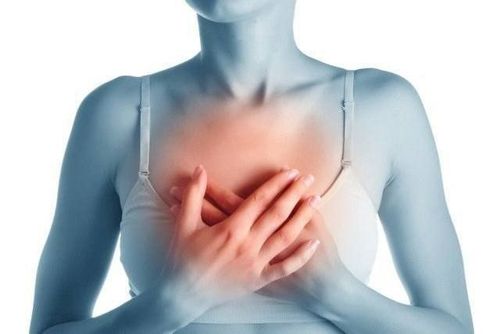This is an automatically translated article.
The article was professionally consulted by Master, Doctor Do Nguyen Thuy Doan Trang - Head of Extracorporeal Circulation Team - Cardiovascular Center - Vinmec Central Park International General HospitalAfter every heart surgery there is a risk of complications. These complications are specific to procedures performed during surgery. The monitoring and treatment of complications after heart surgery is very necessary and important to ensure the patient's recovery process after heart surgery.
1. Risk of complications after heart surgery
Based on the patient's current health status and the procedure performed, the risk of complications from heart surgery will be decided by the surgeon.
The risk of complications is increased for patients 70 years of age or older, patients who have undergone heart surgery, patients with chronic diseases such as coronary artery disease, diabetes, hyperthyroidism or hyperthyroidism. blood pressure .
Here are some common complications after heart surgery:
● Decreased body temperature;
High blood pressure is common in patients after coronary artery bypass surgery;
● Complications of respiratory failure, liver failure, kidney failure, neurological failure;
● Decreased blood pressure causes arrhythmias, loss of ventricular function and possibly death;
● Cardiac tamponade causes restriction of diastolic filling of the two ventricles;
Arrhythmia affecting cardiac output and blood pressure;
● Loss of respiratory function: about 8% of cardiovascular patients have this complication after surgery;
● Acute renal failure: usually, most cardiovascular patients will experience a slight decrease in renal perfusion in the intraoperative and postoperative stages;
● Bleeding: this is a common problem after heart surgery, which may require surgical intervention to stop bleeding or conservative medical treatment;
● Body temperature fluctuates;
Neurological and psychiatric disorders: the proportion of patients with neurological disorders accounts for 0.5-2% in coronary bypass surgery and this rate is higher for patients undergoing surgery. open heart;
● Gastrointestinal bleeding: this complication accounts for 1% of heart surgery patients;
● Hyperglycemia: this is an endocrine complication that requires postoperative intervention. This complication can occur whether the patient has diabetes before surgery or not;
● Brain hemorrhage due to the effects of anticoagulation after surgery.
In addition, between types of heart surgery, the risk of complications will also vary.
2. Treatment of complications after heart surgery

The treatment of complications after heart surgery for patients is extremely important. Delays in diagnosis and treatment can put patients at high risk of death after surgery and take a long time to recover.
● Brain hemorrhage due to the effect of anticoagulants: the patient will be corrected for blood clotting and perform surgery to remove the hematoma in the brain. If this complication is not treated in time, the patient's risk of death is very high. Regular blood tests are needed to adjust the amount of anticoagulants. Depending on the number of heart valves to be replaced, the doctor will prescribe anticoagulants to maintain an appropriate INR between 2.5-3.5;
● Many patients are transferred to the recovery room with hypothermia as a result of hypothermia during surgery. The doctor will use the technique to warm the patient up to about 4-6 hours after surgery. When the body is warmed, the patient will gradually awake, supporting the recovery of the myocardium until it is able to function independently for its metabolic needs;
● Treatment to reduce cardiac output:
Loss of heart valve function (stenosis/residual regurgitation): the doctor will recommend surgery again;
○ Coronary graft stenosis: the doctor will prescribe surgery again;
○ Bleeding status: the doctor ordered surgery again;
○ Coronary spasm: use coronary vasodilators;
○ Lack of intravascular volume: after surgery, when ventricular dilation is at its worst, this often happens, it is necessary to keep an average blood pressure from 70-80 mmHg, to ensure that the volume is at a normal level and can be recovered. fluids, or autologous blood transfusion. In addition, to ensure optimal circulation after open heart surgery, the doctor will optimize the heart rate and heart rate.

● Hypotension: this complication, if left untreated, can cause coronary hypoperfusion or even death. For immediate treatment, the doctor will prescribe the use of vasopressors and volume compensation. For severe left heart failure, vasopressors are used to maintain blood pressure. If no effective method can be found, IABP (percutaneous intra-aortic balloon counterpulsation) should be placed;
Hypertension: Treatment is usually chosen when systolic blood pressure is >150 mmHg with vasodilators to reduce blood pressure;
● Treatment of arrhythmias :
Ventricular extrasystoles: Perform atrial stimulation to eliminate autophagy;
○ Ventricular tachycardia: for patients with stable blood pressure, use antiarrhythmic drugs. For patients with low blood pressure, it is necessary to perform cardioversion immediately, then use antiarrhythmic drugs.
● Correction of supraventricular arrhythmias:
Premature atrial contractility: atrial stimulation with a faster rate;
Atrial flutter: If this complication affects hemodynamics (heart failure, myocardial infarction), you will need to undergo cardioversion and then maintain with pacemaker drugs or cardiovascular intervention to cut the accessory conduction pathways. . If this complication does not affect blood pressure and does not cause myocardial ischemia, overstimulation should be required in the case of heart rate >120 beats/min or treatment with drugs to control the heart rate
○ Atrial fibrillation : Perform cardioversion and maintain with antiarrhythmic drugs if blood pressure drops or myocardial ischemia occurs. If the blood pressure is stable, and there is no myocardial ischemia, the heart rate is above 120 beats/min, then just use antiarrhythmic drugs
● Treatment of stomach and intestinal complications: gastric pH needs to be maintained at the threshold. 4.0 for the prevention of ulcers and high gastrointestinal bleeding. Antihistamine H2 and antacids can be used. As a prophylactic, Sucralfate can be used as it has no effect on reducing acidity. Gastrointestinal bleeding complications can be reduced if the intestinal tract is nourished early;
● Treatment of endocrine complications: Most patients will be controlled by continuous intravenous insulin infusion if blood glucose is high in the early postoperative period.
After heart surgery, if you see any health problems, it is necessary to immediately notify the doctor so that the cause can be determined and the correct treatment is directed to reduce the risk of complications.
Vinmec International General Hospital is a prestigious address for heart surgery patients. Vinmec always implements the monitoring and treatment process before, during and after heart surgery very closely and with high professionalism, ensuring the highest safety for patients.
The process of treating patients after heart surgery at Vinmec is methodically conducted in 6 stages including:
● Preoperative patient treatment, postoperative care and treatment on day 0;
● Postoperative day 1-2;
● Postoperative day 2-3;
● Postoperative day 3-5;
● Postoperative day 5-6;
● Post-surgery day 6-7.
All these steps must be taken according to the patient's clinical response. In the clinical case that the patient does not respond to the physician's expectations, a step-by-step procedure is followed until the patient can be safely discharged from the hospital. Therefore, patients can be completely assured when performing heart surgery at Vinmec.
Please dial HOTLINE for more information or register for an appointment HERE. Download MyVinmec app to make appointments faster and to manage your bookings easily.














